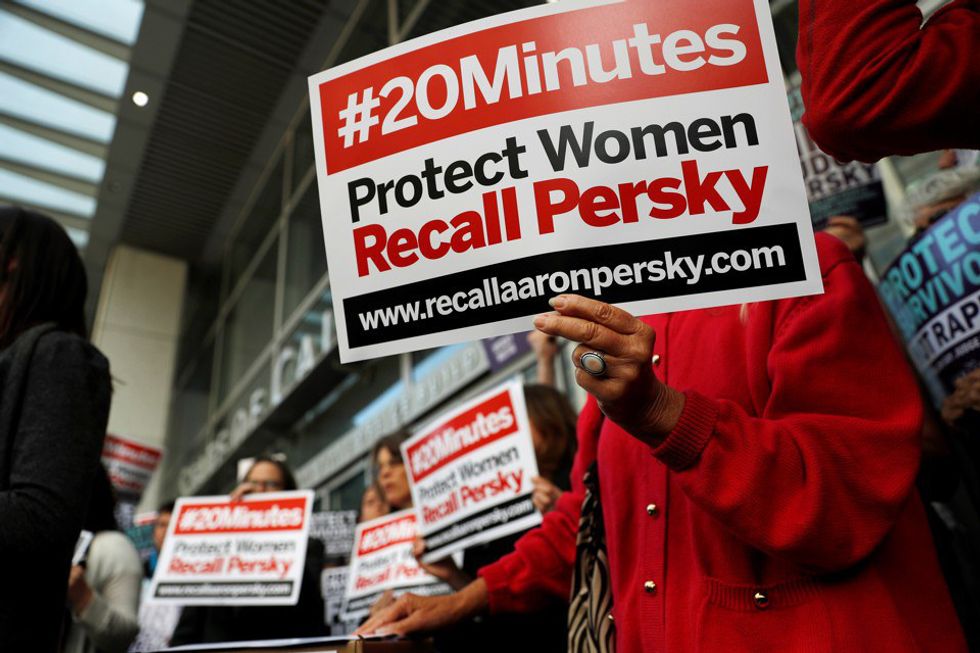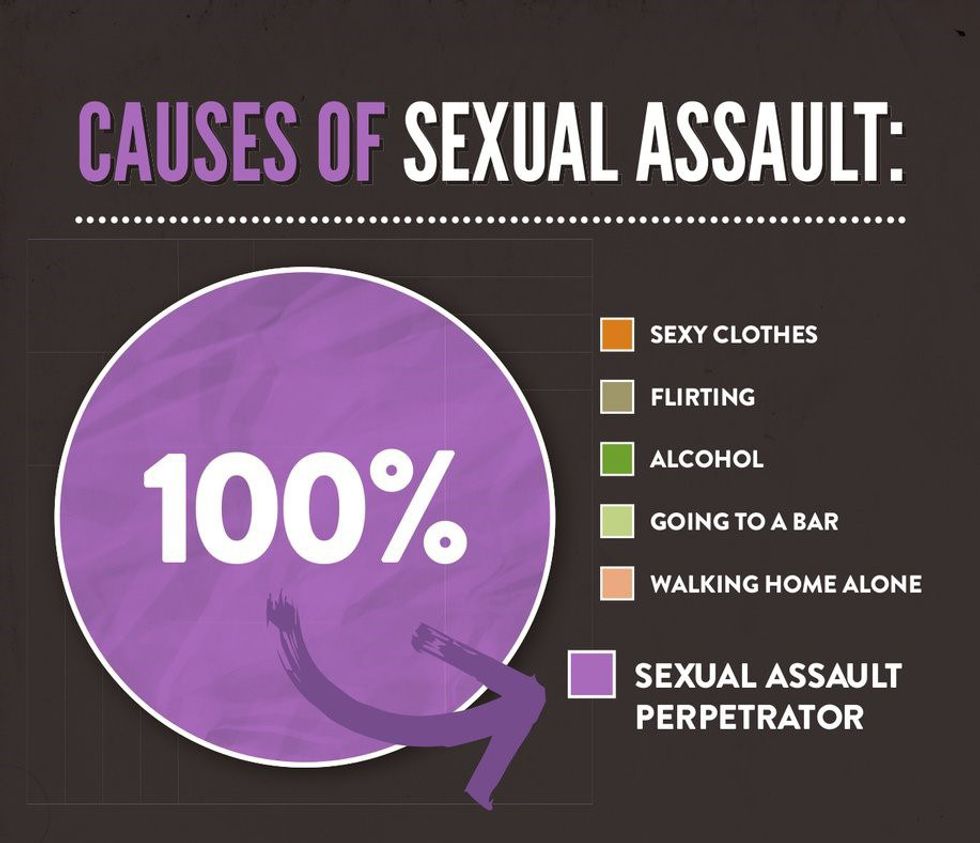Brock Turner for those who do not know, was the Stanford student athlete that was arrested on "suspicion of attempted rape and penetration with a foreign object." Brock was indited on five counts. (1) Rape of an unconscious person, (2) Rape of an intoxicated person, (3) assault with intent to rape an intoxicated woman, (4) sexually penetrating an intoxicated person with a foreign object, and (5) sexually penetrating an unconscious person with a foreign object. Prosecutors pushed for a six year sentence but the judge settled for a six month sentence. Brock was then released on Friday, September 2nd for good behavior.
Upon hearing the news of his early release, the public made sure Brock knew he wasn't wanted in society. The public showed up in mass at the prison to protest his release. Along with the hate for Turner, the crowd shared their distrust for Judge Persky who sentenced Brock to only a six-year sentence. Brock's case is one of the many platforms that people are using to protest the male dominant society and the idea of white privilege. If Brock wasn't a white male from Stanford, he would more likely than not have a greater jail sentence.
Now back to Brock, when he was released from jail, armed protesters were standing outside his house with weapons and signs demonstrating their hatred for him and his crime. Protesters were quoted saying things such as "If he is uncomfortable, then he begins to receive at least some punishment that he deserves for his crime" one protester told WCPO or "If I rape Brock will I only do 3 months?" Brock Turner and his family were scared by this demonstration and asked police for protection.
Pictured above is Jaimes Cambell, the man who organized the event. Jaimes suggested that Turner's case represented many obstacles in rape culture. This addresses the ideas of "rape culture" and "white male privilege," reported attn.com.
In Brock's letter to Judge Persky (later published by The Guardian), Brock wrote about the physical and emotional pain that his crime has brought him and his victim. However, Brock continued to place a lot of the blame on outside forces rather than on himself. The letter begins by saying "The night of January 17th changed my life and the lives of everyone involved forever ... I can never forgive myself for imposing trauma and pain on [victim]." Later in the letter, he writes "I never want to have a drop of alcohol again. I never want to attend a social gathering that involves alcohol again or any situation where people make decisions based on the substances they have consumed." This statement has infuriated many who support the victim saying that rape isn't caused by alcohol or the way someone dresses, but by the perpetrator.
In rape culture, there are many of us who blame the victim. This is one of the only crimes where we place blame on the victim. We don't blame the bank teller when his bank is robbed, the house owner whose house was burglarized, or the child in a child abuse case. Yet, we somehow still hold the victim of a rape case accountable. Rape can happen to anyone at anytime.
Some argue that rape victims wouldn't be the victims if they learned self defense or if they dressed different or didn't drink so much. No matter how prepared you think you may be, you can still be taken advantage of. The only true solution is eliminating the perpetrator from the equation.

























